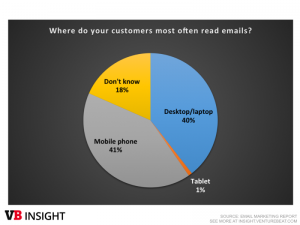 Why Keywords Are Important
Why Keywords Are Important
Before we start, let’s quickly go over why keywords are important. Since the dawn of search engine optimization, there has been keyword research. Keywords are part of the user’s search process. Having your website optimized for certain keywords will allow Google to index your site for which keywords you think are important to your particular business/vertical.
When a user wants to find information or products, they use a combination of keywords to make up their search query. Then the user inputs a search query into the search bar (or these days speak into their phone) and then the search engine, such as Google, serves results from their index.
The goal is to be the most relevant result for keywords and queries so the user looking for your products/information finds what they want on your site.
Types of Search Queries
Before you start your keyword research, you want to get an idea of which type of search queries users would use to find you. Let’s break down the three major types of search queries.
- Navigational Queries
Navigational queries are ones where the user has a set destination in mind and is trying to find their way to a particular site or page within a site. If you have strong brand recognition, this is where most of your organic branded traffic will come from.

- Informational Queries
Informational queries are ones where the user is trying to find an answer to a question. These questions can range from “How to…?” to “Which is the best…?”
This is the heart of the Inbound Marketing Strategy: Having your website provide the best answer to the questions your visitors are asking.

- Transactional Queries
Transactional queries are ones people use when they’re close to or ready to make a purchase. They could be a specific brand or a generic product search. Usually words like “buy,” “purchase,” and “order” are part of the query.

How to Do Keyword Research
Now that you have an idea of what type of queries people are using to get to your site, you want to find keywords that are the best fit. But how do you do that?
There are many tools and strategies available these days (I use quite a few depending on the client), so I’ll give you a quick and easy 3-step guide to start with.
Step 1: Think Logically
Using a little common sense and thinking logically goes a long way in keyword research. Put yourself in the buyers’ shoes and ask yourself how you would find your website if you were a user.
Think about the three main types of queries while you do this and note anything that makes sense. (Don’t censor yourself. You would be surprised how many different ways to search work!)
Step 2: Competitor Analysis
Here we look at which keywords competitors in your space are using. This is usually a good starting point. A great tool for this is SEMrush. It gives you keyword data for specific sites and their competitors.
Step 3: Selection
Once you have a solid list of keywords (including long-tail keywords), throw them into the Google Keyword Research tool. This will give you the average monthly search data as well as its competitiveness.
The competition index is primarily used to judge the competitiveness of the keyword within Google AdWords, but it’s also usually reflective of the overall competitiveness of the word organically. The closer the number is to 1, the more competitive it is.
Select a combination of easy wins (high search traffic and low competitiveness) and harder wins (high search traffic and high competitiveness). Once you have your final list, you’re ready to start optimizing your site for your keywords!
Stream’s Kick-Start Step
Take 30 minutes of your day and work on step 1. Think about the search terms your buyers use and make a list of these terms to use as guidelines for your educational content creation. Make sure that you check back to see how those keywords are performing to ensure that you’re optimizing your content for search.
Digital & Social Articles on Business 2 Community
(28)
Report Post




